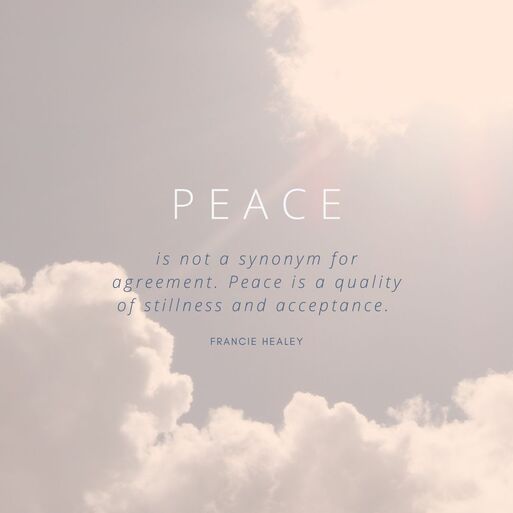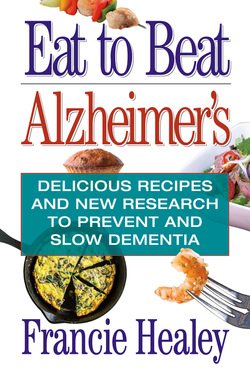|
5/22/2023 0 Comments Inner approval: One Simple Strategy to Make Fear Irrelevant and Give You the Freedom To Be Your True SelfIf you gave yourself the message that you wanted to hear from others, what would that message be?Inner approval, as opposed to getting external approval or permission from others, can be one of the most radically empowering strategies one can make. Instead of wishing for them to understand you, love you, appreciate you, see how good you are, or see your value, why not do this for yourself? This, in a way, is the world of affirmations and positive thinking. What is the message that you long to hear from another? Is there someone in your life, or was there someone in your life, that you wished had said, “I love you,” or “I’m so proud of you,” or “You can be whatever you want to be. I believe in you” ? What if you started saying this to yourself? On a daily basis. Whenever you felt you needed to hear it. As often as you like.
Being willing to do this requires that we let go of controlling another person and needing somebody else to show up a certain way in order for us to be okay. We take back our power this way. And the good news is that we can realize, through doing this simple activity, that we really are in charge of how we feel. One of the biggest obstacles that people face when they make changes in their lives is the worry about what others might think or that they might be judged or rejected in some way. And this does and can happen. But if we are no longer tied to another’s approval, because we are consistently giving that to ourselves, then we are more free to move towards our own dreams regardless of what others think. Sometimes making diet changes can feel this overwhelming. Especially if you live with a family that is used to a certain way of eating and your changes will automatically affect them and be seen by others. Privacy is a luxury, and rarely the case with food. Eating is a social experience and when we say “no” to certain foods that are prevalent in our culture and community it can feel like we are saying “no” to the person who made that food, or bought that food, or isn’t ready themselves to think about their own health changes they could make. We don’t have to broadcast our decisions to the world, but we don’t have to ignore our own needs because some parts of the world will be uncomfortable with our decisions. As human beings we are hard-wired to maintain the status quo, and as evolutionary beings, we are hard-wired to change and grow and learn. Sustainable changes are based in compassion and love for ourselves. And when we give ourselves the inner approval we need to make our changes, then it becomes easier to allow others their reactions. Becoming more conscious and awake to our own patterns and choices does disturb the community. This can be why it feels so challenging to make changes, even though we know those changes would benefit us. That disturbance to the system we are in (whether a family, a relationship, a work environment, a peer group, or otherwise) is uncomfortable. It just is. Altering the status quo disrupts things and that disruption is always an invitation for all involved to let go wherever they need to let go. Wherever we are gripping onto a person or a way of life, or what we have decided brings us security, we have the opportunity to let go of this internal gripping when we feel disturbed or discontent. This is a state of mind. We are always getting opportunities to move from a state of mind of control, to a state of mind of allowing. Giving ourselves the messages we long for about who we are and what we are capable of, is the road to allowing. Allowing ourselves to grow and change as we already know we need to, and allowing others to be exactly where they are on their own journey is freedom. Change is exciting and new and it is also about letting go and moving onward. We don’t have to have this all figured out. We only need to listen to ourselves and be our own best friend, give ourselves the encouragement and support we truly want and need. As we do this, we gain momentum and clarity and purpose. These are the cornerstones of empowerment. And the beginning of leadership. So, lead the way. You know where to go, I know you do.
0 Comments
You may have heard the term “adrenal fatigue” or “adrenal burnout.” These terms are meant to describe a physiological situation in which the systems designed to help us respond and deal with stress become compromised. The adrenal glands, which sit atop our kidneys, secrete a hormone called cortisol when we are experiencing any form of stress. Cortisol helps shift things physiologically (such as suppressing digestion, fertility and blood circulation and turning on fight, flight and flee mechanisms) to that we can “survive” the stress at hand. This is an incredible system for us surviving acute stressful situations. However, chronic stress over time is not conducive to long-term health. When cortisol is chronically high, or even chronically low (which can happen after too much output over too long of a time) we suffer for it.
Possible symptoms of adrenal fatigue, or what is more accurately termed hypothalamic pituitary axis (HPA) dysfunction, can mimic other symptoms of chronic illness. HPA dysfunction, turns out is not simply about fatigued adrenals, but about a delicate interplay of hormones and feedback systems within the brain that becomes maladaptive. It is highly recommended to work with a skilled practitioner and get accurate testing done in order to identify any issues with your HPA axis. However, it can be reasonably assumed that if you suffer from any kind of chronic illness, addressing the health and functioning of your HPA axis is a critical must for regaining your health. In addition to testing, if you suffer from any of the following, it may indicate as well an HPA dysfunction:
You may find this resource on HPA dysfunction helpful for exploring the above in more depth.) There are multiple causes for HPA dysfunction and some of those we have control over and others we do not. One huge factor is disrupted circadian rhythms, and disrupted sleep. Therefore, a powerful step one can take to address HPA dysfunction and begin reducing symptoms is to start prioritizing sleep by getting enough sleep and getting good quality sleep. Lets look at some ways you can start to make small changes that will have big impacts on your quality of sleep, which in turn will support your overall health.
(Read more about healthy sleep and why it is important here.) Not only can adequate sleep help resolve any dysfunction in your HPA (your stress response) but it can also be restorative in areas you wouldn’t think about. When our bodies perceive chronic stress and have a lowered resilience to stress (due to HPA dysfunction) it will shut down, or limit its resources in areas of the body not necessary for immediate survival. This includes the digestive system, reproductive system, and detox systems. Circulation of life giving blood gets limited and rationed. Getting enough quality sleep, regularly, can not only provide you with more energy and brain function during the day but can also improve your ability to absorb essential vitamins and nutrients (which in turn help you look and feel your best), can increase your libido and nourish your intimate relationships (good sex is good for you!), and also supports you getting out toxins which we are exposed to every single day (additives in foods, chemicals in our buildings, furniture, water and air). All in all, supporting our critical need for sleep lays a powerfully strong foundation for health and wellness that will positively inform the quality of your life.
5/5/2023 0 Comments PeacePeace is not a synonym for agreement. Peace is a quality of stillness and acceptance. When we can stop placing our mind’s conditions of peace onto the world, then we can be at peace. When we can let go of the grip we have on our own agenda and find a deeper trust in our lives that is bigger than anything we could have imagined, then we are entertaining peace. We don’t “fight” for peace. In peace, there is no againstness. Peace does not exist when something else stops existing. Peace is in the stillness that is already here. Are you listening for it? Are you able to let go when things don’t go the way you want? It’s hard, I know. We get so invested in our plans and our hopes for ourselves and for others. We get confused and we think that we are being loving. What if loving was much simpler? What if there was no effort in loving, as loving just…..is?
Peace. High Anxiety: How to Stay Strong in the StormFrancie was recently quoted in this article by Deborah Busemeyer that appeared in the Healthy Living Magazine of the Santa Fe New Mexican.
Feeling like you have more control in today’s overwhelming world can bring more ease according to Francie Healey, a health and wellness expert and clinical counselor in Santa Fe. In her Conscious Wellness practice, she helps clients develop a deeper awareness of how their lifestyle and nutrition choices make their bodies feel. The next step is regaining a sense of control over those choices. “We want to do it in a way that doesn’t involve diets or deprivations but in a way that empowers someone to stay curious about how they feel,” Healey said. “It’s important to allow the desire to feel good to be the driver, rather than from the place of using willpower. It’s really about tapping into that place that feels worthy of feeling good. It’s a kind approach.” I had a lovely chat with Jedlie on the Reading with Your Kids podcast. We discussed this recipe, which is a great introduction to cooking with your kids. Cooking is a perfect time to start talking about health and choices around food. Listen here.
4/11/2017 0 Comments Why Alzheimer’s and DementiaIn my book, Eat to Beat Alzheimer’s, I write about the final months of my stepfather’s life and our conversation about my passion for healing with foods. He is actually the one that suggested to me to focus on Alzheimer’s disease. At that time in my life I had a strong intention to write my own cookbook, but was still unclear about the focus. For my stepfather to suggest this to me was a blessing in two ways. One, it was a practical step for me to ground my research and intention in an area that was desperately needed in the world. And second, more personally, it was a moment of being seen and heard by a man that had truly been my father, and with his encouragement and acknowledgment I felt something fall into place within me; perhaps the last bit of courage and confidence I needed in order to follow through with my dream of becoming an author.
4/4/2017 1 Comment Social Media for AuthorsAhh, social media. On the one hand, on the other hand…. I admit completely, that social media was something I pretty much ignored before becoming an author. As an introverted person, social media felt overwhelming to me. I value one-on-one, rich, meaningful connections with other people. The amount of dialogue and diversity on the social media scene is both exhilarating and paralyzing for a person of my temperament.
3/28/2017 1 Comment How I Knew It Was Publishing TimeCompletion is an ambiguous arena to navigate. Creative projects rarely feel done. Eat to Beat Alzheimer’s, a fairly small book, tapped into a place inside of me that had so much to say! It was while working on Eat to Beat that I realized this book was a beginning for me, not the whole. I couldn’t burden one book with all that I had to share. It was important to stay clear on what this cookbook was meant to be: an educational text for learning about nutrition and brain health with recipes to put that learning into action!
3/21/2017 1 Comment Energizing Baby Boomers Baby boomers are the generation born between 1946 and 1964. This puts them in an age range of 52 – 70 years old in 2016. While standards of aging are changing for the better and in general, people are able to live longer, healthier lives, baby boomers do have a unique set of health challenges.
|
Francie HealeyFrancie Healey is the author of "Eat To Beat Alzheimer's and has a Master’s Degree in Counseling and is both a Certified Health Counselor and Licensed Mental Health Counselor.practitioner. Archives
July 2018
CategoriesAll ADHD Alzheimer's Anti-inflammatory Anxiety Avocado Baby Boomers Beat Brain Health Butternut Squash Chicken Children's Health Chronic Disease Coconut Complex Carbohydrates Connection Cooking With Kids Creativity Curry Dementia Depression Diabetes Diet Eating Habits Education Engage Francie Frittata Ginger Healthy Eating Healthy Fats Hope Inflammation Information Inner Health Advocate Inspiration Judgment Kale Learning Lemon Listening Meal Planning Metabolism Mindset Mission Mood Nourishing Choices Nutrition Pancakes Podcast Press Prevention Processed Foods Quinoa Recipe Relationship With Food Relish Research Salad Salmon Self Advocate Self-aware Shitake Mushrooms Social Media Soup Spinach Stir-Fry Sugar Tips Walnut Watercress Wholeness Writing |
|
Copyright © Francie Healey
|
Site Design by Angulo Marketing & Design
|









 RSS Feed
RSS Feed